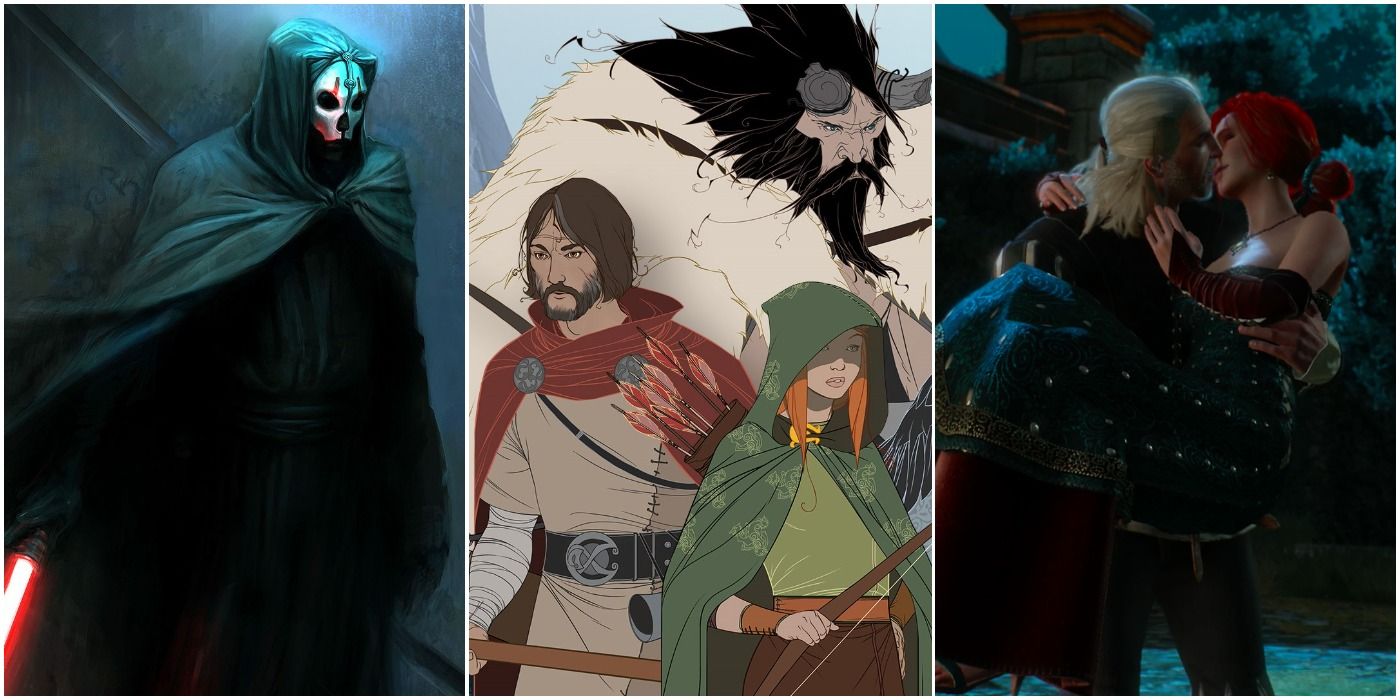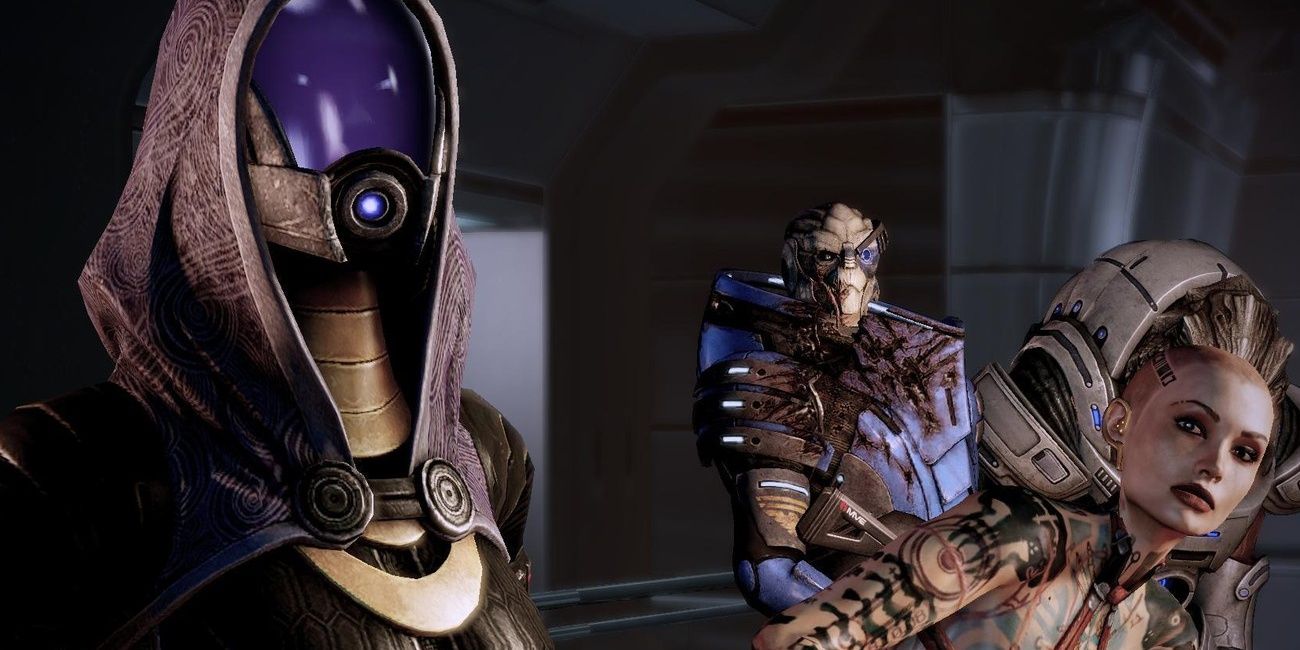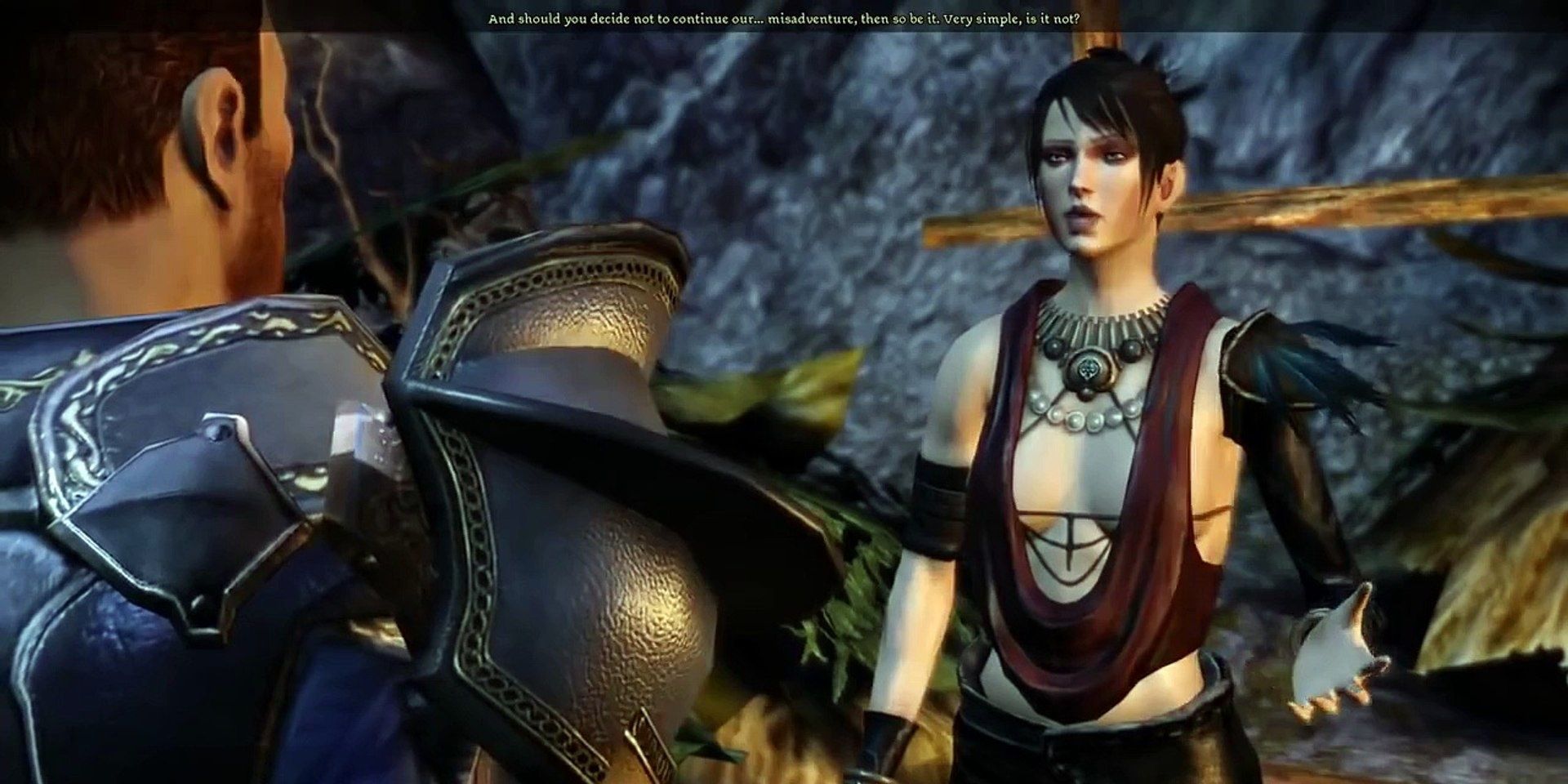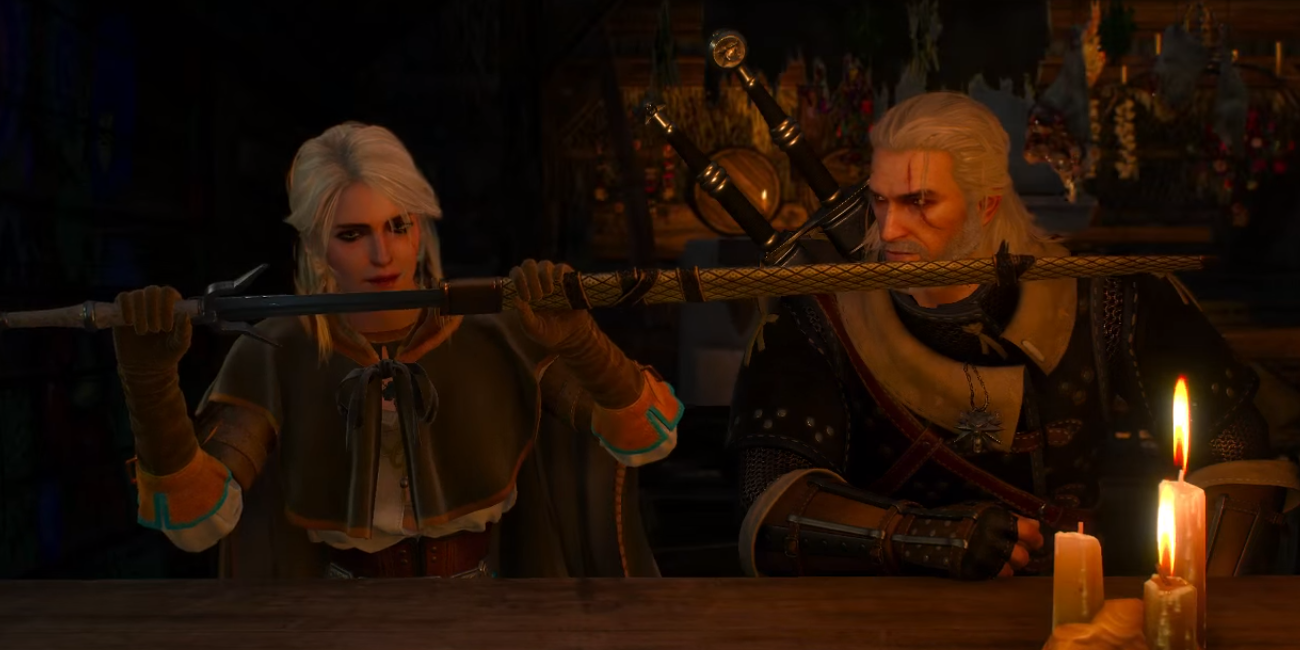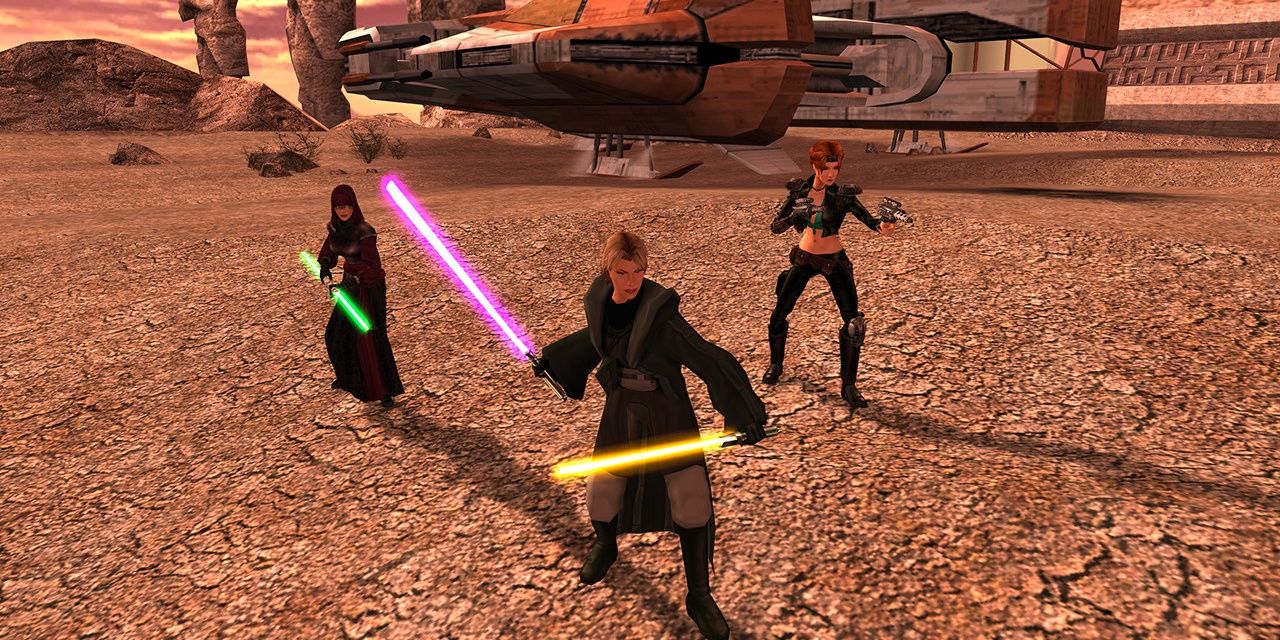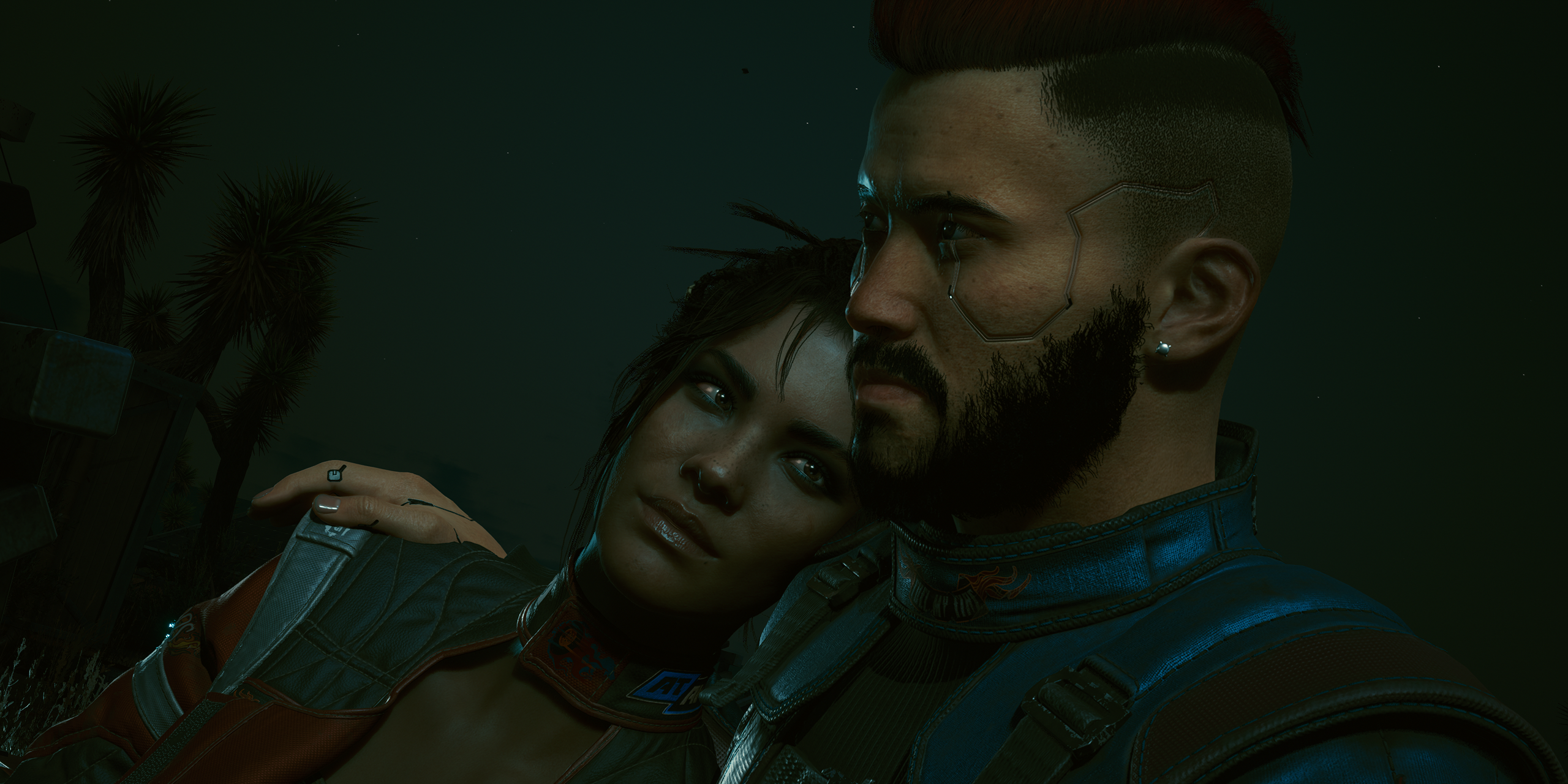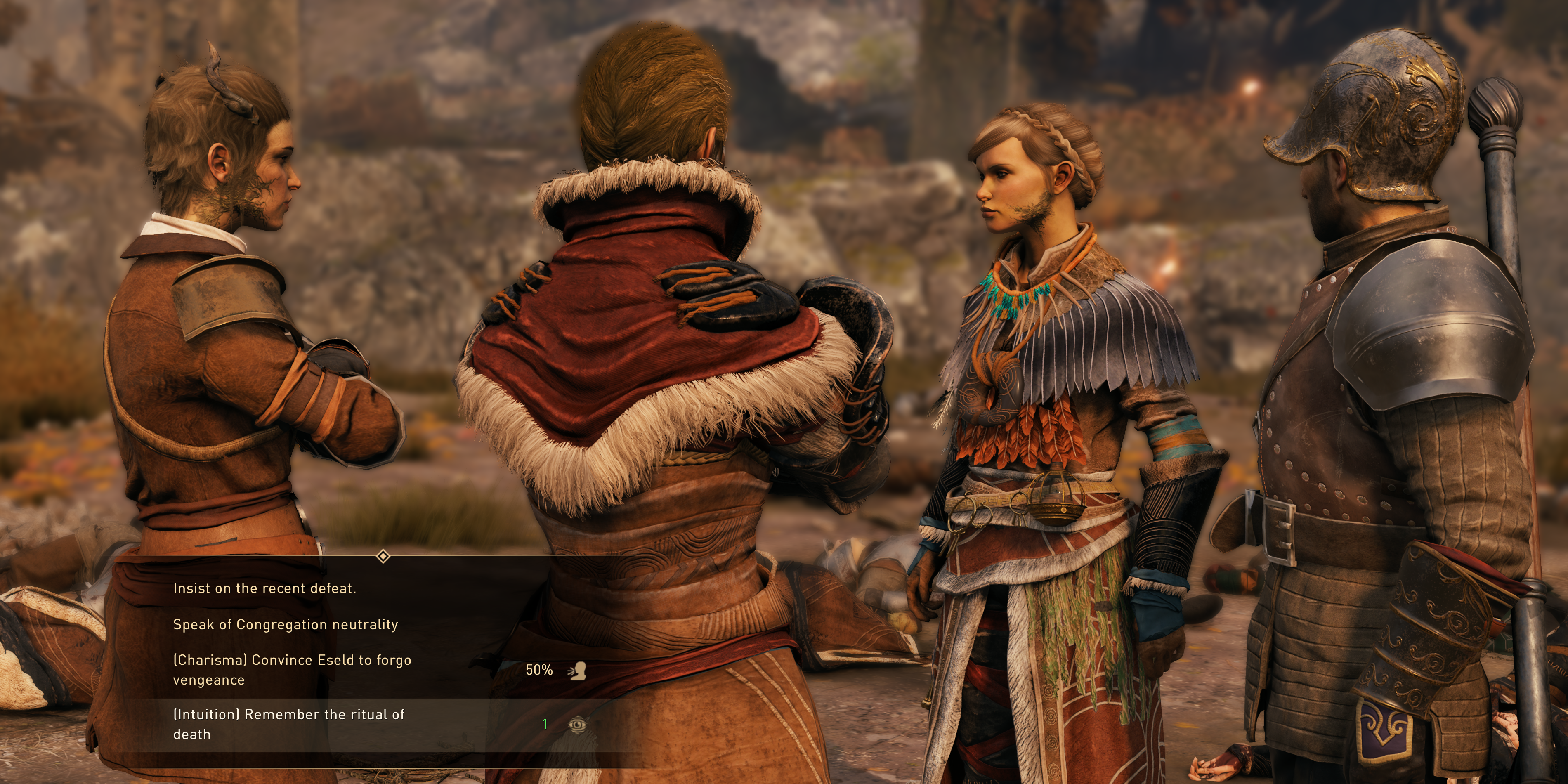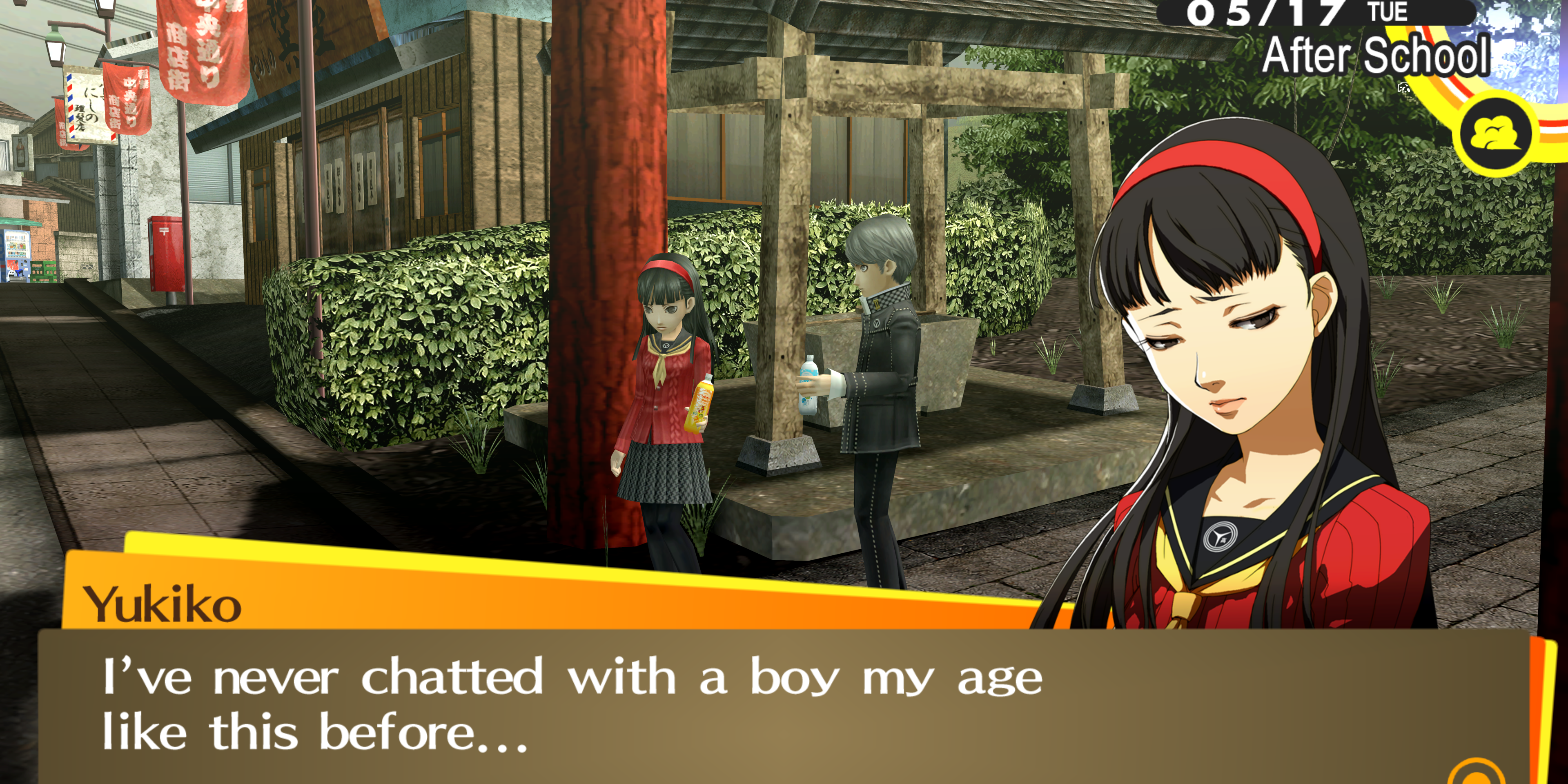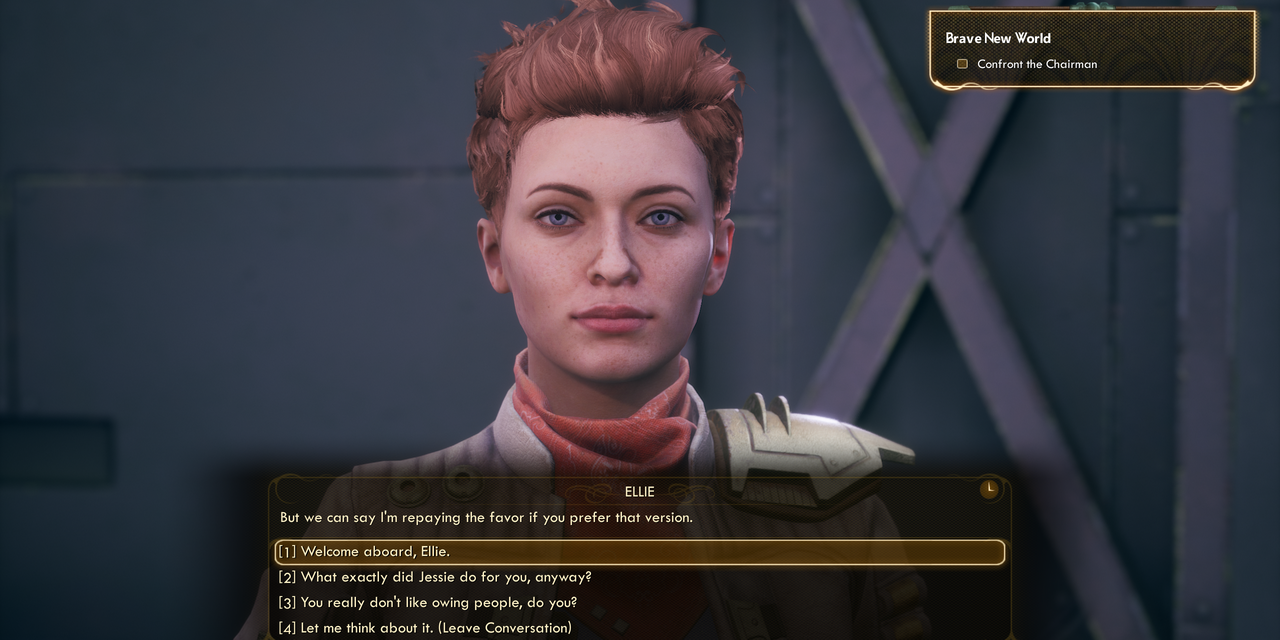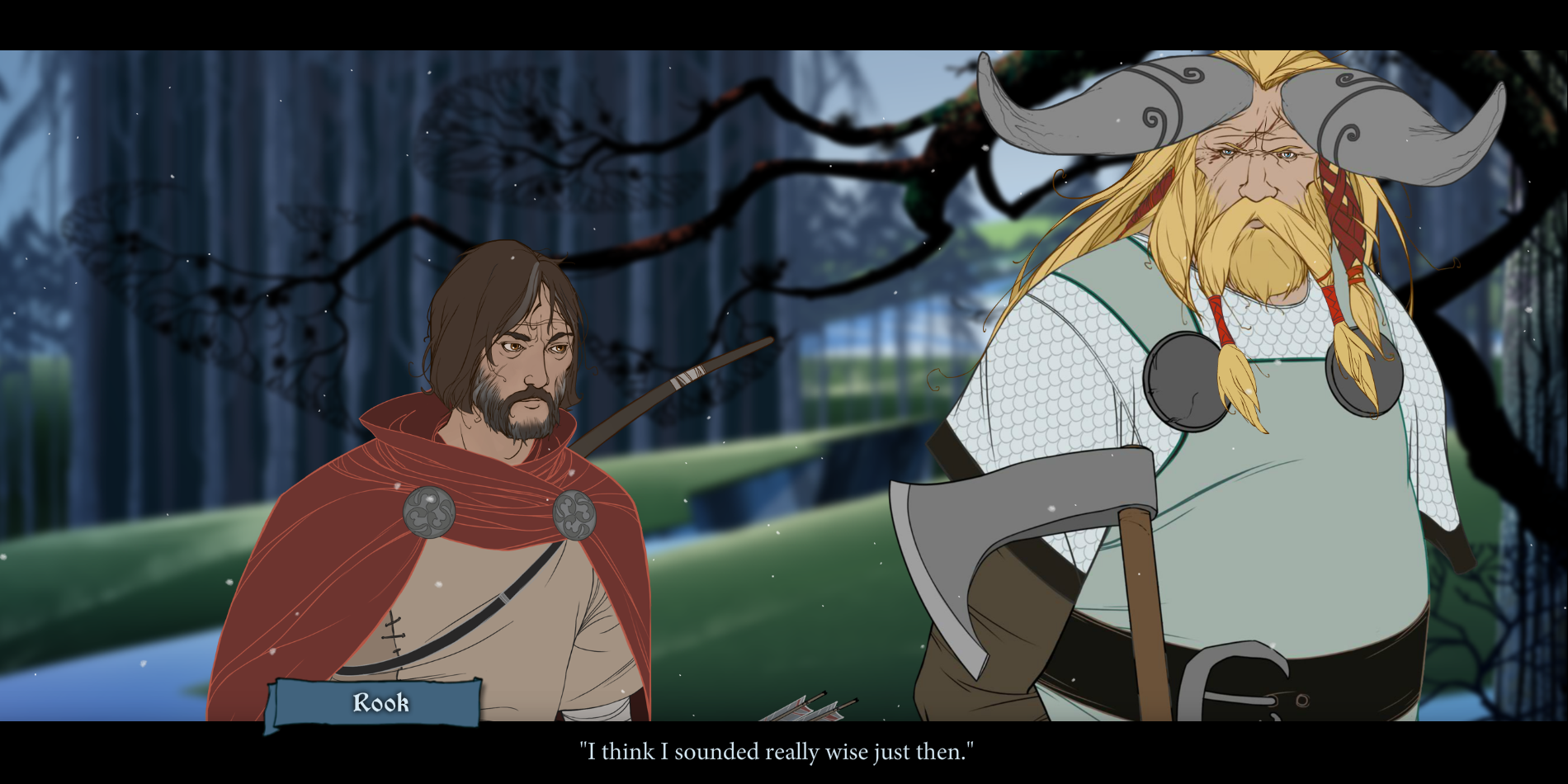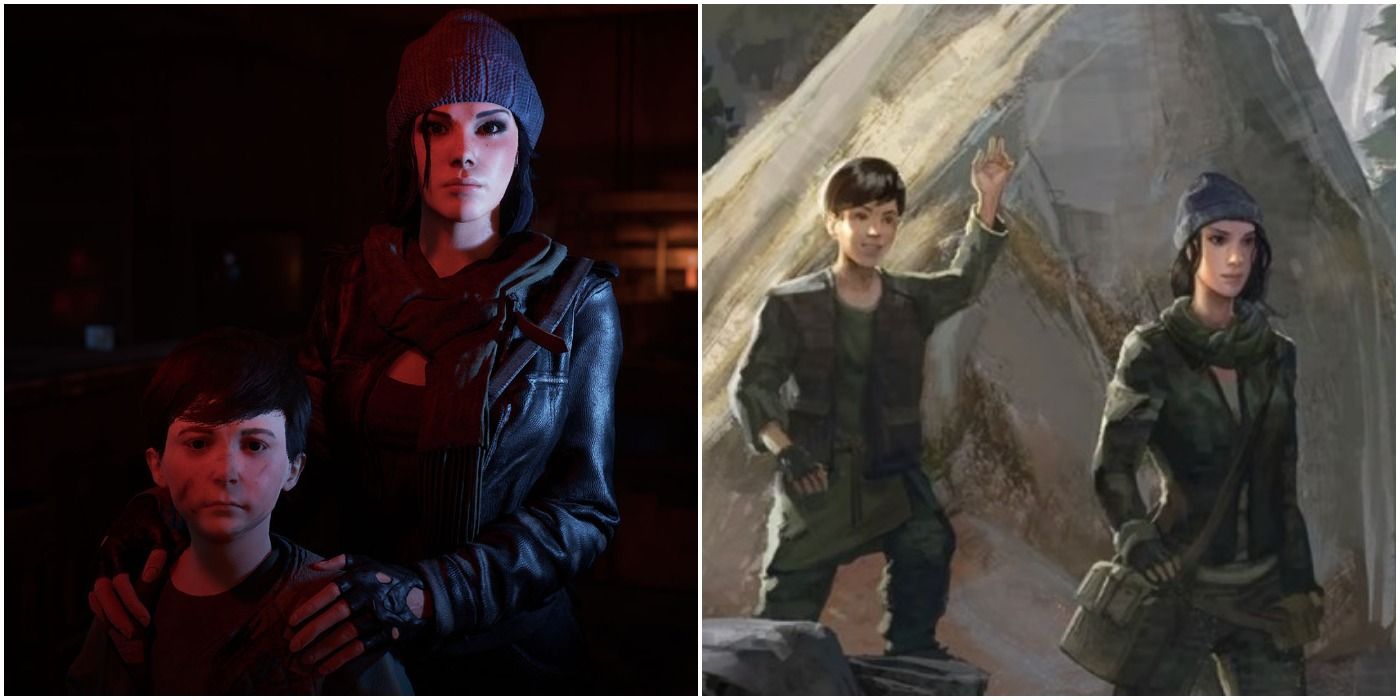Most RPGs have you focus on upgrading your own character. This makes sense due to the sheer number of hours you'll spend controlling this person throughout the adventure. Players want to tailor their protagonist in whatever way they see fit, as this individual is their gateway into the tale. Building your character from the ground up strengthens the illusion that you're part of the game world. From a certain point of view, however, this laser-focus defeats the purpose of role-playing.
The essence of the genre is giving you a role among the denizens of the larger world. Despite that, relatively few RPGs involve those denizens. Some titles allow you to interact more than others, getting to know your party members and others around you on a personal level. Even fewer still manage to blend that into the gameplay. Those that succeed in both of these feats are definitely worth noting.
10 Mass Effect 2
Even in the far future, a captain is nothing without a crew. Star Trek ran with this for years, and Mass Effect keeps the ball rolling. The second game, in particular, encourages recruitment and bonding with several spacefaring misfits. If they feel they can confide in you, then it'll lead to various "Loyalty Missions" to resolve something in their past.
How loyal the Normandy crew is grants certain perks and affects their chances of surviving the final suicide mission against the Collectors. You want them to make it? Help them clean up their mess. Sure, it's not quite as nuanced as earlier BioWare titles, but it still adds an exciting gameplay extension to the usual party mechanic. Plus, it deepens the characters more than the simple conversations of the first game.
9 Dragon Age: Origins
Despite the fantasy setting of Dragon Age, this fellowship doesn't have the unbreakable bond that you'd expect. Finding common ground with party members is an essential part of the experience. That's why players can converse with them at all times and even grant gifts.
Ignoring or dismissing your companions can drive a tangible rift between the party. Oh, they still stand beside you in the heat of battle, but they can only fight for so long for a cause they don't believe in. This eventually causes them to leave. Impending darkspawn apocalypse? Handle it yourself! The lack of altruism here makes Game of Thrones look like He-Man.
8 The Witcher 3: Wild Hunt
One wouldn't expect the emotionally distant Geralt to surround himself with friends, but the bonds that he reaffirms with those closest to him form some of the most poignant moments in this fantasy epic. Of course, players can move toward Yennefer or Triss to decide whom the witcher spends the rest of his life with.
More important, though, is the father-daughter dynamic with Ciri. These interactions help forge the young warrior's ultimate path, determining whether she has the strength to conquer her destiny and what follows. Careful what you say to her. After all, you don't want the days spent tracking her down to be for nothing.
7 Star Wars: Knights Of The Old Republic II - The Sith Lords
Obsidian Entertainment had a tough task following one of the most beloved Star Wars titles ever, but their sequel was a more engrossing narrative that deepened many of the systems BioWare had put in place. Nowhere was this more apparent than the party members.
Chatting with your shipmates increases or decreases your influence over them. Garnering enough not only makes them more devoted to you, but it later allows you to train some of them in the Force. Their entire outlook and skillset could shift. Most main characters don't go through that kind of change, let alone supporting players.
6 Cyberpunk 2077
It's hard to ignore someone who's stuck in your head. Such is the case with Johnny Silverhand. You'll obviously be well acquainted with this rock star through numerous moral, ethical, and existential debates. These interactions are central to the narrative of Cyberpunk 2077.
That said, players can become just as invested in the other colorful characters V meets along the way. Socializing with these guys can alter how this urban drama ends. It's not just who aids in the final assault on Arasaka. The bonds forged with them determine whether V stays in Night City, leaves it all behind, and if he/she achieves legendary status. The merc loses a lot in this tale. A few friends might make the hardships worth it.
5 GreedFall
In many ways, GreedFall feels like an old-fashioned BioWare title (before their fall from grace). This especially applies to party mechanics. The bygone act of talking to allies anytime yields dialogue and questlines that increase your standing with them, and a high status actually adds their skills to your own.
It also pays to maintain a reputation among the various factions. On top of gifting great equipment, they'll be more willing to lend their aid in the final battle. It's fulfilling to see these disparate organizations come together for the island they share, and it's all thanks to you. Few RPGs nowadays let you leave that kind of impact.
4 Persona 4 Golden
The fourth mainline Persona entry is respected for many reasons, even among its own series, but one of the most important is its cast of characters. As a Japanese foreign exchange student, you're thrust into these freaky scenarios with your classmates and must rely on them for survival.
That's why Social Links are so crucial. Levelling these up through everyday interactions grants new abilities and pre-battle bonuses. Certain links also unlock the secret ending. Considering the turn-based party fights, the game is already built around being stronger as a group. Players just needed some extra incentive to bask in awkward teen exchanges.
3 The Outer Worlds
After working on established series for years, Obsidian hit it big with their own IP. What initially looks like a mundane first-person shooter in space soon showcases the developer's role-playing skillet. Many quests have branching outcomes, and these outcomes benefit certain factions over others. You have to decide whom you support among these colonies.
The game's ending, of course, is determined by whether you side with the corporation, but factions and characters also have their own conclusions. It's not simply your story. As is the case with any settlement, decisions affect multiple parties in the long run. This contributes to the illusion of a fully-drawn world. You must immerse yourself in that world to get the full experience.
2 The Banner Saga Trilogy
By its very nature, a caravan is comprised of multiple people. Taking their opinions into consideration is part of the process, much like the aforementioned settlements in The Outer Worlds. However, it's even more involved here.
In The Banner Saga, your responses can cause certain people to either join or leave the group. Moreover, the renown that you bestow on worthy fighters at campsites makes them more advantageous in battle. With a strategic system like this, you need every advantage (and able-bodied warrior) you can get. These elements help the gameplay and characters feel as lively as the designs and animation.
1 Terminator: Resistance
It quickly becomes apparent that, in the midst of the worldwide war, Terminator: Resistance derives its drama from this ragtag pack of scavengers you meet early on. However, you can choose to ignore them once you join up with the soldiers (some gamers probably will), but doing so robs you of some poignant perspective as you learn about their experiences before Judgement Day.
Each of these misfits has a story to tell, and they all have their own ending. You can only see those endings if they trust you enough to leave before the impending attack on the Resistance base. Isn't time travel great? These guys survived the apocalypse for a reason. Don't let them be terminated before the war ends.

